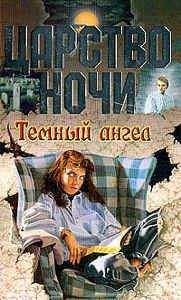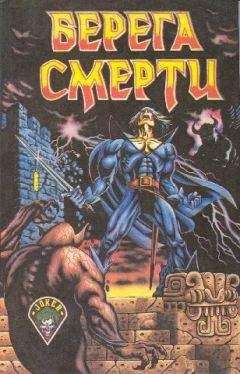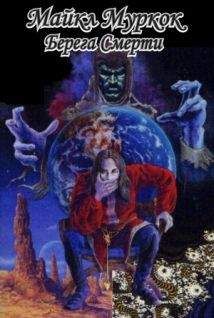Майкл Муркок - Английский язык с М. Муркоком
Was this, then, the all-powerful Arioch, living like a drunken farmer in a pigsty (значит, это и был всемогущий Ариох, который живет, как пьяный фермер в свинарнике)? Was this the malevolent creature which had destroyed whole nations (неужели это и есть злобное создание, которое уничтожило целые народы), which pursued a vendetta upon all the races to spring up on the Earth before his coming (которое осуществляло кровную месть = мстило всем расам, что возникли на Земле до его прихода)?
Arioch's laughter shook the floor (смех Ариоха сотряс пол). Some of the parasitic Mabden fell off his body (некоторые мабдены-паразиты отвалились от его тела; parasitic — паразитический; вредный). A few were unhurt, while others lay with their backs or their limbs broken, unable to move (/лишь/ немногие были невредимы, в то время как остальные лежали со сломанными спинами и конечностями, неспособные двигаться). Their comrades ignored their plight and patiently climbed again upon the God's body (их товарищи = соплеменники не обратили внимания на их беду и снова терпеливо взбирались на тело бога; plight — положение /обычно затруднительное, бедственное/), tearing tiny pieces from him with their teeth (отрывая зубами от него крохотные кусочки).
busy [ˈbɪzɪ] oblivious [əˈblɪvɪəs] pigsty [ˈpɪɡstaɪ] vendetta [venˈdetə]
And other beings were busy, too. Like lice, they scampered and crawled over the God's huge bulk, picking at his skin, feeding off his blood and his flesh. Of all these activities, Arioch seemed oblivious. His interest continued to be the fight to the death in the gallery above.
Was this, then, the all-powerful Arioch, living like a drunken farmer in a pigsty? Was this the malevolent creature which had destroyed whole nations, which pursued a vendetta upon all the races to spring up on the Earth before his coming?
Arioch's laughter shook the floor. Some of the parasitic Mabden fell off his body. A few were unhurt, while others lay with their backs or their limbs broken, unable to move. Their comrades ignored their plight and patiently climbed again upon the God's body, tearing tiny pieces from him with their teeth.
Arioch's hair was long, lank and dry (волосы Ариоха были длинными, прилизанными и иссохшими; lank — гладкий, невьющийся; прилизанный /о волосах/). Here, too, Mabden searched for and fought over the bits of food that clung to the strands (здесь тоже мабдены искали и дрались за кусочки пищи, которые прилипли к прядям /волос/; to cling; strand — длинный локон, прядь волос). Elsewhere in the God's body hair Mabden crept in and out (кое-где в волосах на теле бога мабдены ползали туда и сюда; to creep — ползать, пресмыкаться), hunting for scraps and crumbs or tender portions of his flesh (разыскивая кусочки и крошки или нежные части его плоти; to hunt for — искать; добиваться).
The two demons fell back (два демона упали назад). One of them was dead, the other almost dead but still laughing weakly (один был мертв, другой — почти мертв, он все равно слабо смеялся). Then the laughter stopped (затем смех прекратился).
Arioch slapped his body, killing a dozen or so Mabden, and scratched his stomach (Ариох хлопнул по телу, убив дюжину или около того мабденов, и почесал живот; to scratch — царапать/ся/, скрести/сь/; чесать/ся/, расчесывать; stomach — желудок; живот). He inspected the bloody remains in his palm and absently wiped them on his hair (он пристально посмотрел на кровавые останки на своей ладони и рассеянно вытер их о волосы). Living Mabden seized the scraps and devoured them (живые мабдены набросились на куски /прихлопнутых/ и сожрали их; to seize — хватать, ухватываться; scrap — клочок, кусочек; объедки, остатки /пищи/).
dozen [dʌzn] stomach [ˈstʌmək] absently [ˈæbs (ə) ntlɪ] devoured [dɪˈvauəd]
Arioch's hair was long, lank and dry. Here, too, Mabden searched for and fought over the bits of food that clung to the strands. Elsewhere in the God's body hair Mabden crept in and out, hunting for scraps and crumbs or tender portions of his flesh.
The two demons fell back. One of them was dead, the other almost dead but still laughing weakly. Then the laughter stopped.
Arioch slapped his body, killing a dozen or so Mabden, and scratched his stomach. He inspected the bloody remains in his palm and absently wiped them on his hair. Living Mabden seized the scraps and devoured them.
Then a huge sigh issued from the God's mouth (потом огромный вздох раздался из рта бога = Ариох громко вздохнул; to issue from — вытекать, исходить) and he began to pick his nose with a dirty finger that was the size of a tall poplar (и он принялся ковырять в носу грязным пальцем, который был размером с высокий тополь).
Corum saw that there were openings beneath the galleries and stairways twisting upwards (Корум увидел, что под галереями есть проходы и лестницы, поднимавшиеся наверх; to twist — виться, изгибать/ся/), but he had no notion where the highest tower of the palace might be (но он понятия не имел, где может находиться самая высокая башня дворца). He began to move, soft-footed, around the hall (он начал двигаться, крадучись: «с мягкими ногами», по залу; to move around — передвигаться, перемещаться).
Arioch's ears caught the sound and the God became alert (уши Ариоха уловили звук /его шагов/, и бог насторожился). He bent his head and peered about the floor (он наклонил голову и всмотрелся в пол). The huge eyes fixed on Corum and a monstrously large hand reached out to grasp him (огромные глаза остановились на Коруме, и невероятно большая рука потянулась, чтобы схватить его).
alert [əˈlə: t] monstrously [ˈmɔnstrəslɪ] grasp [ɡrɑ:sp]
Then a huge sigh issued from the God's mouth and he began to pick his nose with a dirty finger that was the size of a tall poplar.
Corum saw that there were openings beneath the galleries and stairways twisting upwards, but he had no notion where the highest tower of the palace might be. He began to move, soft-footed, around the hall.
Arioch's ears caught the sound and the God became alert. He bent his head and peered about the floor. The huge eyes fixed on Corum and a monstrously large hand reached out to grasp him.
Corum raised his sword and hacked at the hand (Корум поднял меч и рубанул руку), but Arioch laughed and drew the Vadhagh prince towards him (но Ариох рассмеялся и подтянул вадагского принца к себе).
`What's this (что это)? the voice boomed (прогремел голос). `Not one of mine (не один из моих). Not one of mine.
Corum continued to strike at the hand and Arioch continued to seem unaware of the blows (Корум продолжал наносить удары по руке, а Ариох продолжал выглядеть незнающим = казалось, не замечал ударов), though the sword raised deep cuts in the flesh (хотя меч оставлял глубокие порезы в его плоти; to raise — поднимать; вызывать, порождать). From over his shoulders, behind his ears and from within his filthy hair (из-за его плеч, из-за его ушей, из его грязных волос), Mabden eyes regarded Corum with terrified curiosity (глаза мабденов смотрели на Корума с ужасом и любопытством: «напуганным любопытством»; to regard — расценивать; рассматривать).
`Not one of mine, Arioch boomed again (снова прогремел Ариох). `One of his (один из его). Aye. One of his.
`Whose (чей)? Corum shouted, still struggling (крикнул Корум, по-прежнему сражаясь /с рукой/).
regarded [rɪˈɡɑ:dɪd] curiosity [, kju (ə) rɪˈɔsɪtɪ]
Corum raised his sword and hacked at the hand, but Arioch laughed and drew the Vadhagh prince towards him.
`What's this? the voice boomed. `Not one of mine. Not one of mine.
Corum continued to strike at the hand and Arioch continued to seem unaware of the blows, though the sword raised deep cuts in the flesh. From over his shoulders, behind his ears and from within his filthy hair, Mabden eyes regarded Corum with terrified curiosity.
`Not one of mine, Arioch boomed again. `One of his. Aye. One of his.
`Whose? Corum shouted, still struggling.
`The one whose castle I recently inherited (того, чей замок я недавно унаследовал). The dour fellow (/того/ непреклонного парня; dour — строгий, непреклонный, угрюмый). Arkyn. Arkyn of Law (Аркина, /бога/ Закона). One of his. I thought they were all gone by now (я думал, они все уже погибли; by now — к этому времени, уже). I cannot keep an eye on little beings not of my own manufacture (я не могу уследить за /всеми/ малявками: «маленькими существами» не моего собственного производства = не за своими творениями). I do not understand their ways (я не понимаю их; way — путь, дорога; манера, привычка, особенность).



